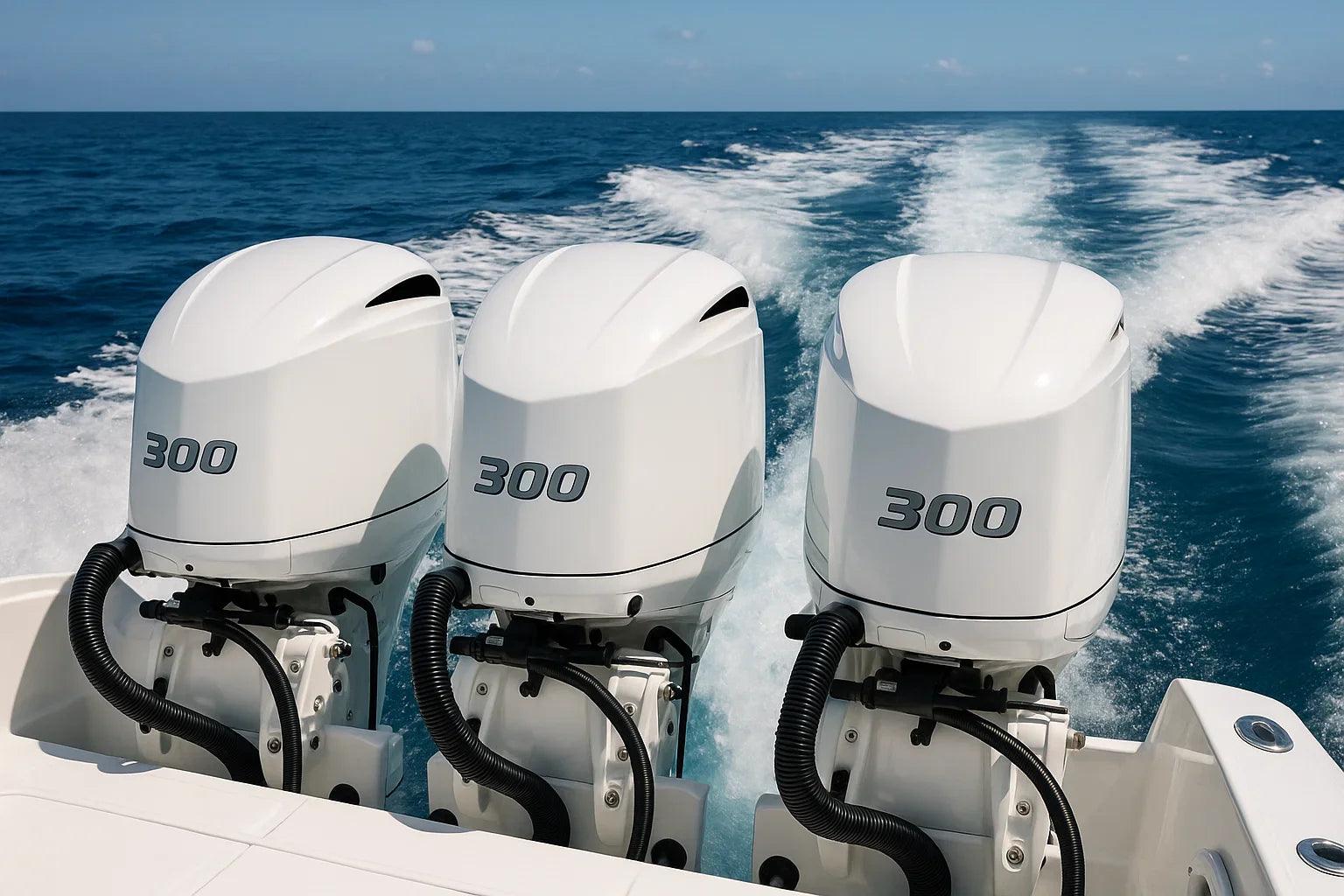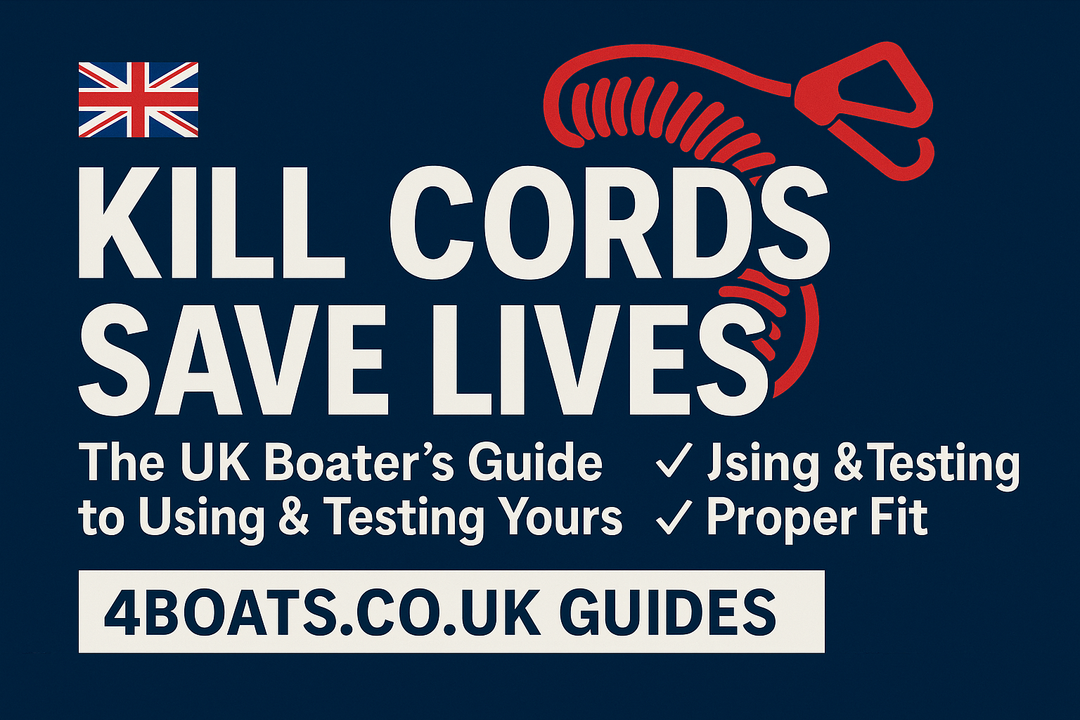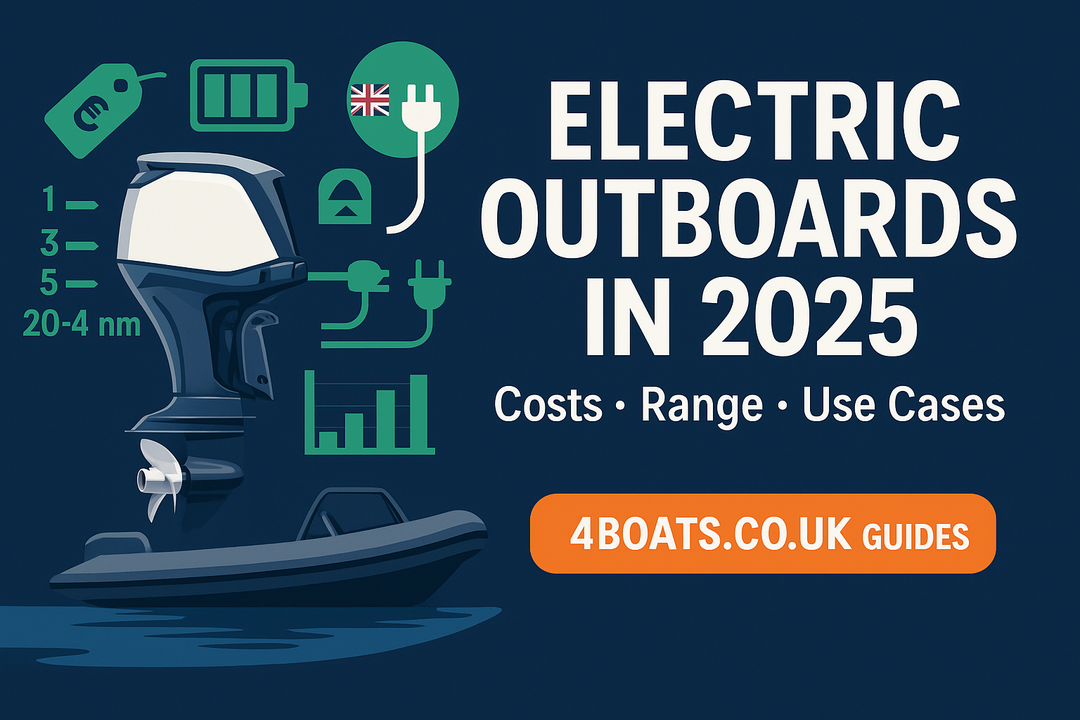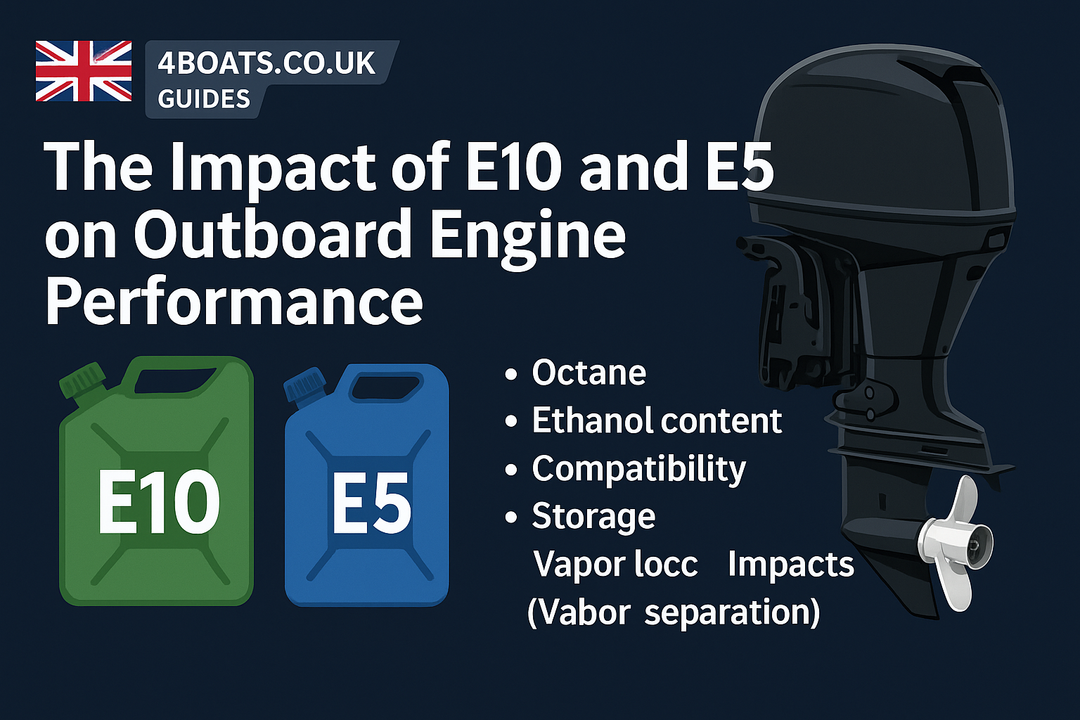Electric, Petrol, and Hydrogen Outboards: Navigating the Future of Boating
As boating enthusiasts, we're always seeking ways to enhance our experience on the water. With rapid technological advancements and a growing emphasis on environmental sustainability, the marine world is exploring new horizons in propulsion technology. The pivotal debate now extends beyond just Electric vs. Petrol Outboards to include the emerging Hydrogen Outboards. Which is the best choice for today's boater? Let's dive deep into the intricacies of each propulsion type to help you make an informed decision.
The Traditional Powerhouse: Petrol Outboards
Advantages
-
Extended Range and High Power: Petrol outboards offer a wide range of horsepower options, making them suitable for various boat sizes and activities like waterskiing, fishing, and offshore cruising.
-
Ease of Refuelling: Petrol is readily available at marinas and fuel stations, allowing for quick and convenient refuelling.
-
Proven Reliability: Decades of use have established petrol engines as reliable and durable when properly maintained.
-
Lower Initial Cost: Generally, petrol outboards have a lower upfront cost compared to electric and hydrogen options.
Disadvantages
-
Environmental Impact: Petrol engines emit greenhouse gases and pollutants that contribute to air and water pollution, affecting marine ecosystems.
-
Higher Operating Costs: Fluctuating fuel prices and the need for regular maintenance can increase the overall cost of ownership.
-
Noise and Vibration: Petrol engines are noisier, which can disrupt the tranquility of the boating experience and disturb wildlife.
-
Mechanical Complexity: More moving parts mean a higher chance of mechanical failure and increased maintenance requirements.
The Eco-Friendly Innovator: Electric Outboards
Advantages
-
Zero Emissions: Electric outboards produce no exhaust fumes during operation, making them environmentally friendly and ideal for lakes and regions with strict emission regulations.
-
Quiet Operation: With minimal noise, electric motors enhance the serenity of your boating experience and are less likely to disturb marine life.
-
Low Maintenance: Fewer moving parts result in reduced wear and tear, lowering maintenance costs and the likelihood of mechanical issues.
-
Instant Torque and Smooth Acceleration: Electric motors provide immediate power, offering superior responsiveness and maneuverability.
-
Potential Cost Savings Over Time: Lower energy costs and reduced maintenance can offset the higher initial investment over the lifespan of the motor.
Disadvantages
-
Limited Range and Battery Life: Current battery technology may limit the duration and distance of trips, requiring careful planning for recharging.
-
Charging Infrastructure: The availability of charging stations is still growing, which can be a limitation in some boating areas.
-
Higher Upfront Cost: Electric outboards typically have a higher purchase price than petrol engines.
-
Battery Weight and Space: Batteries can be heavy and take up significant space on the boat, potentially affecting performance and capacity.
The Emerging Contender: Hydrogen Outboards
Hydrogen propulsion is an exciting and emerging technology in the marine industry, offering the potential for clean and efficient power.
Advantages
-
Zero Emissions: Hydrogen fuel cells emit only water vapor, eliminating harmful pollutants and greenhouse gases.
-
High Energy Density: Hydrogen can provide greater energy per unit weight compared to batteries, potentially offering longer range and higher power output.
-
Fast Refuelling: Refuelling with hydrogen can be quicker than charging electric batteries, reducing downtime between trips.
-
Quiet Operation: Like electric motors, hydrogen fuel cells operate quietly, enhancing the boating experience.
Disadvantages
-
Infrastructure Limitations: Currently, there is a lack of hydrogen refuelling stations, especially in marine environments, which limits practicality.
-
Storage Challenges: Storing hydrogen safely on board requires advanced technology due to its low density and flammability.
-
High Costs: The production, storage, and distribution of hydrogen are currently expensive, affecting the overall cost of hydrogen outboards.
-
Technological Maturity: Hydrogen outboards are still in the developmental stage and are not widely available commercially.
Comparative Analysis
Performance
-
Petrol Outboards: Offer high speeds and power, suitable for a wide range of activities but come with environmental and noise drawbacks.
-
Electric Outboards: Provide excellent torque and quiet operation, ideal for eco-friendly boating and areas with noise restrictions but may have range limitations.
-
Hydrogen Outboards: Promise high efficiency and zero emissions with potentially longer ranges than electric, but technology is still emerging.
Environmental Impact
-
Petrol: Emits pollutants and greenhouse gases, contributing to environmental degradation.
-
Electric: Zero operational emissions, but environmental impact depends on the electricity source.
-
Hydrogen: Zero emissions if produced from renewable sources; however, if hydrogen is produced using fossil fuels, it can negate environmental benefits.
Cost Considerations
-
Initial Investment: Petrol outboards are generally less expensive upfront, electric outboards are higher, and hydrogen outboards are expected to be costly due to new technology.
-
Operating Costs: Electric and hydrogen outboards may offer lower operating costs over time, while petrol engines have ongoing fuel and maintenance expenses.
Infrastructure and Accessibility
-
Petrol: Widely available refuelling infrastructure.
-
Electric: Growing network of charging stations; home charging is an option.
-
Hydrogen: Limited refuelling infrastructure; significant investment is needed for widespread adoption.
Making the Right Choice for You
When deciding among electric, petrol, and hydrogen outboards, consider the following:
-
Boating Habits:
- Petrol: Suitable for long-distance travel and activities requiring high power.
- Electric: Ideal for short trips, calm waters, and eco-sensitive areas.
- Hydrogen: Potential future option for those seeking longer range with zero emissions.
-
Environmental Values: Electric and hydrogen outboards align with eco-friendly practices.
-
Budget:
- Upfront Costs: Petrol is currently the most affordable initially.
- Long-Term Costs: Electric may save money over time; hydrogen costs are uncertain.
-
Infrastructure Availability:
- Petrol: Fuel stations are widely accessible.
- Electric: Charging stations are expanding; home charging is feasible.
- Hydrogen: Infrastructure is currently limited.
-
Technological Preference: Early adopters may be interested in supporting emerging technologies like hydrogen propulsion.
The Future of Outboards
The marine industry is on the cusp of significant change, with sustainability driving innovation.
-
Electric Advancements: Improvements in battery technology, such as increased energy density and faster charging, are making electric outboards more practical for a broader range of applications.
-
Hydrogen Development: Investment in hydrogen production and storage technology is growing, with potential breakthroughs that could make hydrogen outboards viable in the coming years.
-
Regulatory Changes: Stricter emissions regulations may incentivize the shift towards electric and hydrogen propulsion.
-
Hybrid Systems: Combining petrol and electric or hydrogen power to balance range, power, and environmental impact.
Conclusion
Choosing between electric, petrol, and hydrogen outboards depends on various factors, including your boating needs, environmental considerations, and budget. Each propulsion type offers unique advantages and challenges.
At 4Boats.co.uk, we're dedicated to providing you with the latest information and a comprehensive range of outboard options. Our experts are here to help you navigate these choices and find the perfect fit for your vessel.
Explore our extensive range:
-
Electric Outboards: Featuring the latest in eco-friendly technology for a quiet and clean boating experience.
-
Petrol Outboards: Reliable and powerful engines from top manufacturers for all your boating adventures.
-
Hydrogen Outboards: Stay tuned! As hydrogen technology develops, we plan to offer cutting-edge hydrogen propulsion options.
Contact Us
Have questions or need personalized advice? Reach out to us at office@4boats.co.uk or call us on 07500282085. Our team is always ready to assist you with expert guidance tailored to your boating needs.
Stay Informed
Join the 4Boats community by subscribing to our newsletter. Receive updates on the latest marine technologies, exclusive offers, and expert insights to help you navigate the future of boating with confidence.





